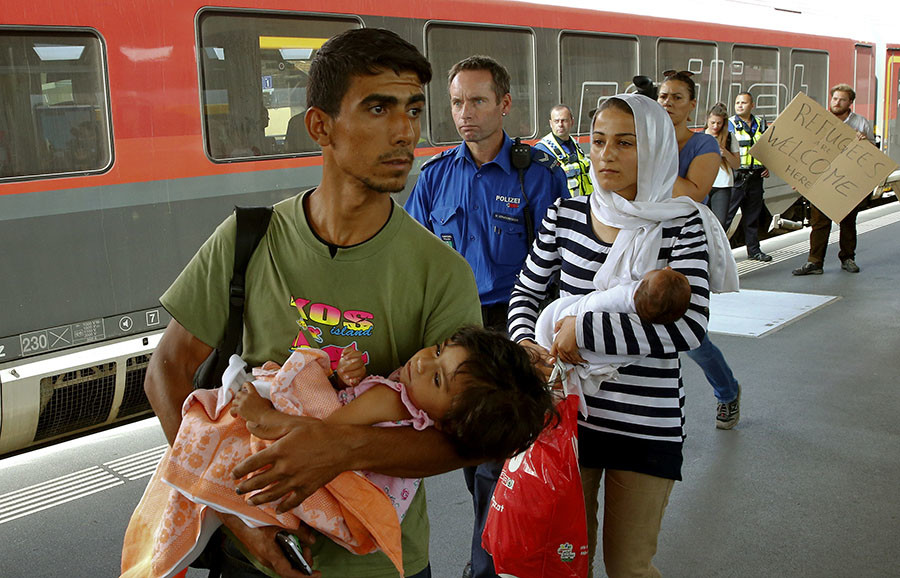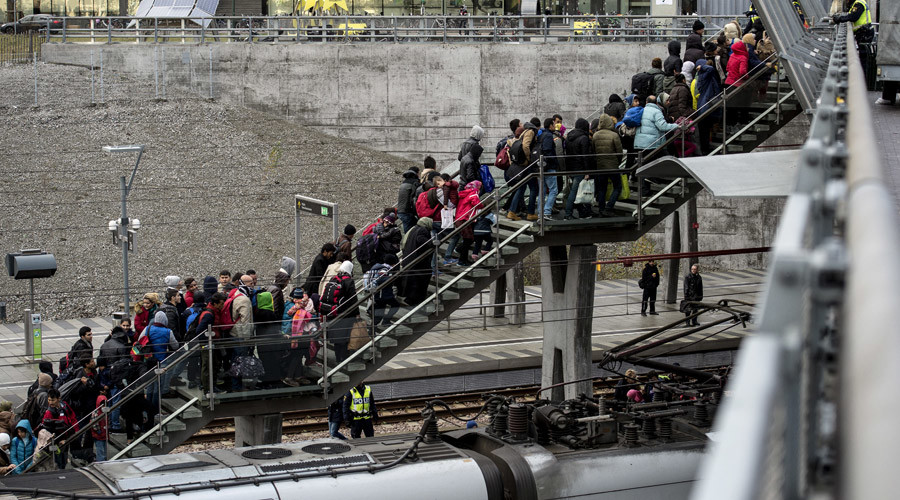Europe -- Coping
"Our expenses on asylum-seekers are the second highest in the whole of the EU, if you look at the percentage of spending relative to GDP. Also, when we support asylum-seekers economically, it has clear economic consequences and the number of asylum seekers goes up dramatically."
"We have this basic principle that if you can support yourself then you have to do so. But if it’s gold — and it will be gold in some cases — then of course there is a world market for gold."
Danish Immigration Minister Inger Støjberg
"We don’t want to have refugees everywhere because this is not good for integration."
"The problem is we already have a lot of trouble with integration. It’s not possible for Denmark to take the same amount of refugees as Germany."
Kirsten Ketscher, professor of social security and welfare law, University of Copenhagen
"Even though few politicians will say directly in public, the goal seems to be to spread uncertainty among refugees outside Denmark about whether Denmark really is a welcoming country."
Kristian Jensen, integration researcher, Aarhus University
 |
| Arnd Wiegmann / Reuters |
“We want to limit the inflow,” Prime Minister Lars Loekke Rasmussen, stated, characterizing the new bill as "the most misunderstood bill in Denmark's history."
The purpose of the bill is obvious; like other European countries Denmark has been swamped with the presence of migrants, not necessarily from Syria, but mostly Syrian refugees, many of whom were able to leave the refugee camps in Turkey because they had valuable assets enabling them to pay their way. The bill will permit Danish authorities to take possession of cash and any individual items whose combined value exceeds 10,000 kroner (€1,340, $1,450) from migrants.
The limit of the value was raised to $1,450 bringing it in line with another law which requires Danes to sell all of their valuables before they are permitted to apply for unemployment benefits. Now Switzerland too has stated it is prepared to introduce legislation to force refugees to surrender cash and valuables to Swiss authorities to help pay for their upkeep. The Swiss decision follows the controversial plan implemented by Denmark.
Refugees arriving in Switzerland, once their bill is passed will have to turn over assets they possess valued at over 1,000 Swiss francs ($997). "If you have property worth more than 1,000 Swiss francs when you arrive at a reception center you are required to give up these financial assets in return for a receipt,” an information sheet for refugees states.
Europe is under great stress, and there is no sign in the near future that the catastrophic conflict that has led to the floods of refugees and migrants streaming into Europe will be ending any time soon. There is concerning anticipation that in fact, with spring on the way if anything that flood will turn into yet another massive deluge.
- "Sweden sends sharp signal with plan to expel up to 80,000 asylum seekers";
- "Finnish PM drops promise to let refugees use his home";
- "Norway is latest country to propose seizing asylum seekers' cash and valuables".
Sweden has taken in 160,000 asylum seekers and is preparing to expel half that number. It is a country of ten million people with a limit to absorption of those whose heritage, culture and religion represents an upheaval of striking proportions boding ill for the future. Austria too has put a cap on refugee arrivals at 1.5 percent of its population.
Last month an International Monetary Fund report estimated that Denmark faced a Syrian refugee financial burden equivalent to 0.57 percent of GDP for 2016. The estimate for Sweden was one percent. In an Oxfam report released this week countries' 2015 contributions to the Syrian refugee crisis was measured where Denmark contributed far more than its fair share at 318 percent; Norway at 385 percent; Sweden at 142 percent and Finland at 136 percent.
 |
| Johan Nilsson / Reuters |
Labels: Conflict, Denmark, Europe, Refugees, Sweden, Switzerland, Syria

<< Home